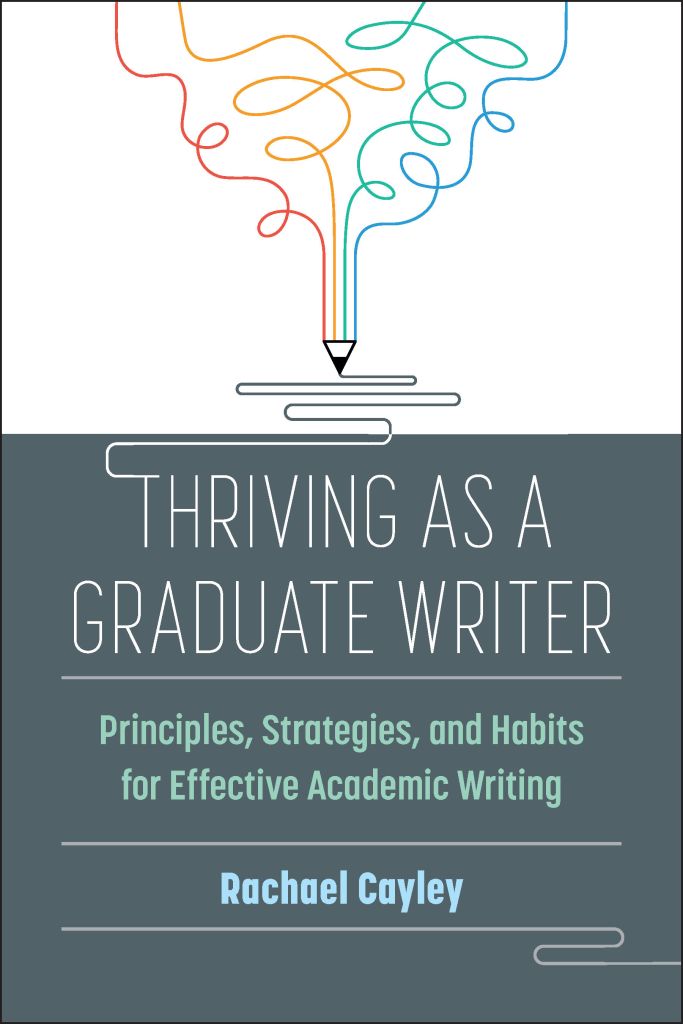If you’re a regular reader of this blog, you will know that I’ve spent the last few years working on a book about graduate writing. That process is now drawing to a close: Thriving as a Graduate Writer will be published in June! Between now and then, I’m going to use this space to share brief excerpts. In addition to my discussion of principles, strategies, and habits for effective academic writing, the book has short ‘asides’ that allowed me to engage with topics outside that main narrative. Over the next four months, I’ll share my favourites of those asides. As always, I’d love to hear what you think!

Since graduate students are so often on the receiving end of advice, some of you might find it helpful to be able to engage in a quick translation process.
Advice: You should do X.
The person telling you to do X is probably suggesting a way to achieve something (let’s call it Y). Unfortunately, they aren’t talking about the importance of Y or telling you how you might achieve Y; they are just telling you to do X. If all you do is attempt X, without understanding its connection to Y, you might actually make your situation worse. A little further investigation on your part can help translate the advice into something more helpful:
Translation: You should do X because Y.
Once you have that formulation, to can adapt the advice to your own purposes:
Advice you can use: You should do something to achieve Y.
To make this more concrete, let’s consider a perennial favourite bit of writing advice:
Advice: You should write in the morning.
This advice is fine if you are a morning person; however, if you are not, you may end up struggling to force yourself to write according to someone else’s temperament. Or maybe you are a morning person, but your life circumstances–the demands of paid work or care work–prevent you from using that time for writing. To avoid the frustration of advice that doesn’t work for you or your life, you can try to understand the underlying reason for the advice:
Translation: You should write in the morning to avoid wasting your best energy of the day.
Advice you can use: You should find ways to avoid wasting your best energy of the day.
Now the ball’s in your court. You need to identify when you have the most energy and find ways–within the context of your life–to preserve that time for writing. This translation technique has the potential to help you to use supervisory advice, especially when you find it overly attuned to the specificity of someone else’s writing situation. The cliché that all advice is a form of nostalgia can be true. But it’s possible to translate such advice into a more suitable form, thereby deriving the benefit of advice in a way that makes sense in your writing life.
Thriving as a Graduate Writer will be available in early June from the University of Michigan Press. To pre-order your copy, visit the book page. Order online and save 30% with discount code UMS23!
rcayley
Book Cover showing title: Thriving as a Graduate Writer
